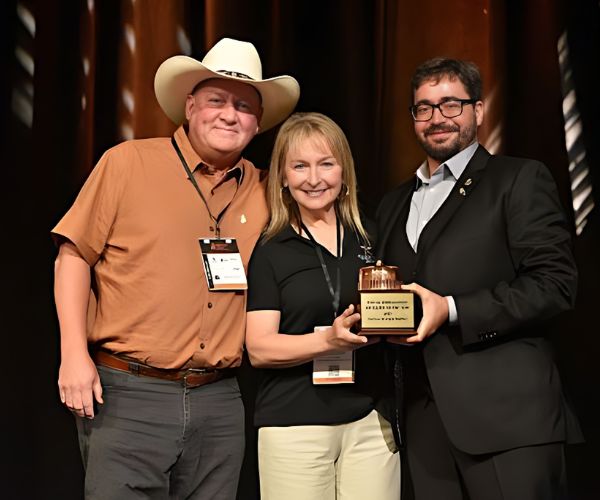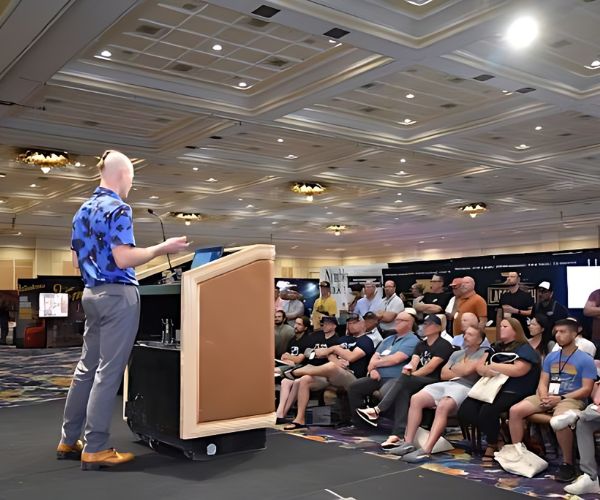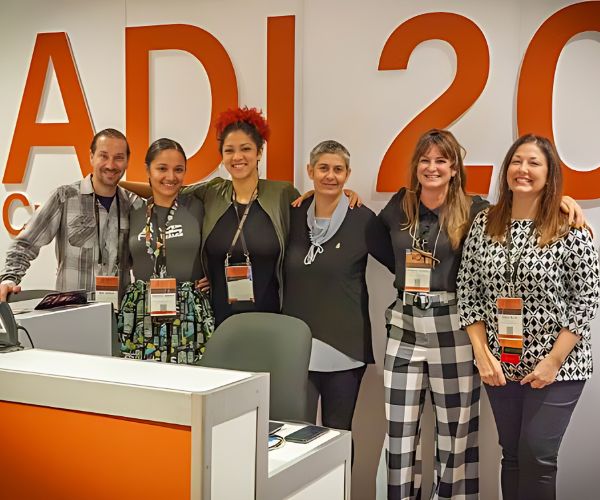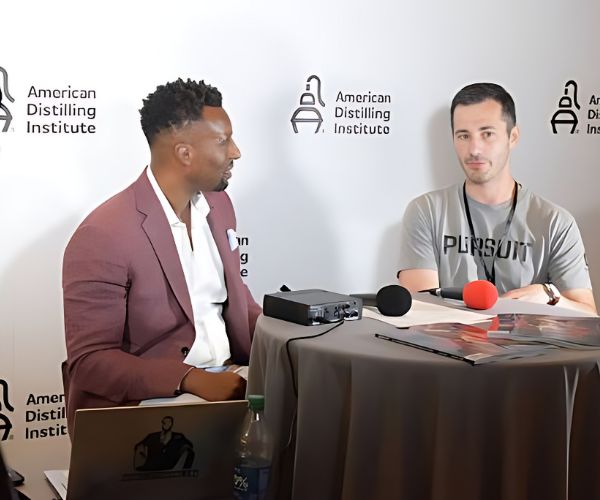
20/06/2024 Exploring the Evolution and Innovation in Craft Distilling
Erik Owens, President of the American Distilling Institute (ADI), is at the forefront of the craft distilling movement in the United States. With a background in biology and biotech, Erik brings a unique perspective to the industry. From his early days brewing beer to leading ADI, Erik has witnessed the growth and evolution of craft distilling. In this exclusive interview, Erik shares insights into the challenges and triumphs of the industry, the impact of ADI, and his vision for the future of craft spirits.
Can you tell us about your journey from brewing beer at Buffalo Bill's Brewery to becoming the President of ADI? How did your early experiences influence your career path?
ADI was founded by my father Bill Owens, who was revolutionary in three careers. First, he was a fine art photographer who documented 1970’s Californian suburbia. His photographs are in museums around the world and are still exhibited today. In 1983, He took his love of homebrewing and created Buffalo Bill’s Brewery, the first brewery since prohibition to serve draught beer in an onsite tap room. In 2003 he founded the American Distilling Institute, predicting the burgeoning craft distillery movement would follow the trajectory of craft brewing.

Image: Dan and Nancy Garrison from Garrison Brothers Distillery with Erik Owens at ADI Craft Spirits Conference
ADI was founded in 2003 when there were only about 25 craft distilleries in the US. How have you seen the industry evolve since then, and what role has ADI played in its growth?
In 2003 there almost wasn’t a cohesive craft distilling industry. Just 60 people attended our first ADI conference in 2004 at St. George Distillery in Alameda, California. Today, there are more than 2,700 distilleries in the U.S., and over 1,800 distillers, vendors, and industry professionals attend our annual conference.
In 2004, there was very little technical distilling information available in this country. Practical guidance on how to install a still, how to run it, and how to make good spirits was in short supply. The first craft distillers in the United States were passionate entrepreneurs running small family-owned businesses, often manufacturing spirits from local raw materials. Many were farmers looking to add value to their crops. It was nearly impossible to get a loan or raise capital from local investors. Worst yet, local fire and zoning departments had no idea what was needed to safely run a distilled spirit plant.

Image: ADI Conference
Today, the landscape is much more diverse and dynamic. Craft distilleries range from small family-owned businesses to larger firms. Some distillers distill their own spirits, and some put their own fingerprints on sourced spirits. There are importers and exporters, independent bottlers, and many other types of craft spirit business models. Many of the 60 attendees at the first ADI conference have gone on to become the foundation of the industry. ADI has played a key role by providing ongoing continuing education resources, including workshops, masterclasses, and webinars, and hosting the largest craft distilling conference in the nation. ADI publishes Distiller Magazine, a quarterly trade magazine about craft distilling, and publishes specialty books on craft distilling through our publishing arm, White Mule Press. We also engage politically to support legislation that benefits the industry.
As the President of ADI, what are your primary responsibilities, and what are your key objectives for the organization?
My primary responsibilities include representing ADI in the community, from visiting distilleries to attending major allied trade conferences like DISCUS, WSWA Brewers Association, and the Unified Wine Conference. I also oversee internal operations, set strategy, and develop new initiatives that link to ADI’s overarching mission: To help small, independently owned distilleries succeed.

Image: 2024 ADI Conference in Baltimore—a catalyst for collaboration and innovation
How does ADI support its members, particularly small to mid-sized distilleries, and what resources does it provide to help them succeed?
ADI supports members through our focus on continuing education, information exchange, and relationship building within the industry. Our annual conference is the largest gathering of craft distillers in the world, with dozens of speakers each day and the largest trade show floor in the industry. We publish Distiller Magazine, a quarterly trade magazine reporting on important issues in the industry and offering practical, actionable information that informs and inspires. We offer multi-day workshops taught by industry experts on specific topics hosted by distilleries around the country. Founded in 2007, our International Spirits Competition has given written feedback from all judges to all entries since day 1, which has helped new entrants improve their products. White Mule Press publishes specialty books on distilling industry topics, from how to start a distillery and how to make great apple brandy, to sophisticated topics in distillery finance. We also host the ADI Forums, the “town square” of craft distilling, where distillers can share ideas, ask each other questions, sell equipment, look for jobs, and tap into the community in many different ways.

Image: ADI members at the 20th annual ADI Craft Spirits Conference.
The craft distilling industry has faced challenges such as regulatory issues and competition from larger distilleries. How has ADI advocated for its members and helped navigate these challenges?
In the early days of craft distilling in the United States, distillers faced a highly fragmented regulatory environment with different rules in every state. Some states were more permissive, while others were (and even continue to be) extremely strict about what distilleries can and cannot do. During the period of most intense state legislative activity, ADI operated a state law tracking system to give distillers at-a-glance visibility into the laws of each state. We also supported distillers in lobbying their state legislatures to change those laws. As a result, state-by-state legislative environments have improved dramatically, although there is still lots of work to be done.
Another major issue in the last 20 years was Federal excise tax reduction. Before the Craft Beverage Modernization Act was initially (and temporarily) enacted in 2017, the federal excise tax on distilled spirits was about $20 per proof gallon. The idea to lobby for reduced Federal excise taxes was born at an ADI conference in 2008. Over the next nine years, ADI participated in congressional visits to lobby for the extension, published editorials, and supported legislative engagement to achieve this vision. In 2020, the tax reduction was finally made permanent. Many of our members estimate that the change allowed them to save tens of thousands of dollars each year, which they reinvested in labor and equipment for their distilleries.
ADI's annual spirits competition is the oldest craft spirits competition. Can you tell us about the significance of this competition for craft distillers and the industry as a whole?
Founded in 2007, our International Spirits Competition has given written feedback from all judges to all entries since day 1, which has helped new entrants improve their products. Best-in-class winners not only receive the recognition and satisfaction of excellence but are also guaranteed meetings with distribution and retail partners including Southern Glazers, TotalWine, Binny’s and Specs.

Image: An episode of "Voices of Distilling", host Ronnell Richards sits down with Kenny Coleman.
What trends do you see shaping the future of craft distilling, and how is ADI preparing its members to adapt to these changes?
Craft distillers are facing an increasingly competitive market. Increased competition comes not just from other craft distillers, but from major multinational beverage companies who have taken cues from craft distillers and begun focusing on ingredient provenance, creative barrel finishes, out-of-the-box blending, and other techniques popularized by small producers.
ADI helps craft distillers compete more effectively with a wide range of continuing education to learn skills and techniques in high demand today. For instance, our annual three-day Blending, Maturation, and Warehousing workshop builds critical skills related to barrel storage, blending, and product creation — essential for producers of grain-to-glass or sourced aged spirits.
Many craft distillers are transitioning to column still systems to increase capacity, or even launching operations with column stills installed on day 1. In response, we now offer a three-day column distillation course that equips participants with the skills they need to run these complex systems efficiently and effectively.
Our annual conference is also a valuable way for craft distillers to future-proof their businesses. Our trade show floor — the largest in the industry — serves as a showcase for innovation in the sector. Distillers can smell distillates made with new yeast strains, taste the products of new rapid maturation systems, learn about innovative new lending and finance opportunities, and handle new bottle and label materials.

Image: New Liberty Distillery took home the Bubble Cap award at the ADI Craft Spirit Conference in St. Louis back in September
How do you balance innovation and tradition in the craft distilling industry, and how does ADI support distillers in exploring new techniques and flavors?
We strive to balance innovation and tradition in all of our continuing education programming. Our goal is simply to equip distillers with new tools and knowledge, including traditional knowledge mostly lost in the United States due to prohibition. It’s up to them to use those tools to follow their ideas and instincts and develop new products. Much of our content, including Distiller Magazine, our weekly newsletter, workshops, and conference breakout sessions, is driven by craft distiller feedback, ideas, and curiosity. We always strive to accommodate innovative new product categories at our International Spirits Competition. For example, we recently added a new RTD/RTS category, and are closely monitoring emerging categories like American agave spirits.
What advice do you have for aspiring craft distillers looking to enter the industry?
Become a sponge for knowledge. The first few years have a steep learning curve. In general, craft distillers are a welcoming and collaborative bunch. Attend an ADI conference and meet as many people as you can. You’ll find most will be happy to share their experiences, their expertise, and their hard-won knowledge with you. Find ways to gain hands-on experience. That might be an ADI workshop, a local college or university course, or an internship at another local craft distillery. Participate in the ADI forums, and read Distiller Magazine to develop a sense of what’s happening in the industry today. If you’re starting a business, pay special attention to choosing your location. Regulatory environments can differ immensely between even neighboring counties.
[[relatedPurchasesItems-31]]
Conclusion:
Erik Owens' journey from brewing beer to leading the American Distilling Institute reflects the spirit of innovation and perseverance that defines the craft distilling industry. Through ADI, Erik continues to champion the growth and success of craft distillers, ensuring that their voices are heard and their spirits are celebrated. As the industry evolves, Erik remains committed to preserving its rich traditions while embracing new opportunities for creativity and excellence.
In conversation with Malvika Patel, Editor and VP, Beverage Trade Network



